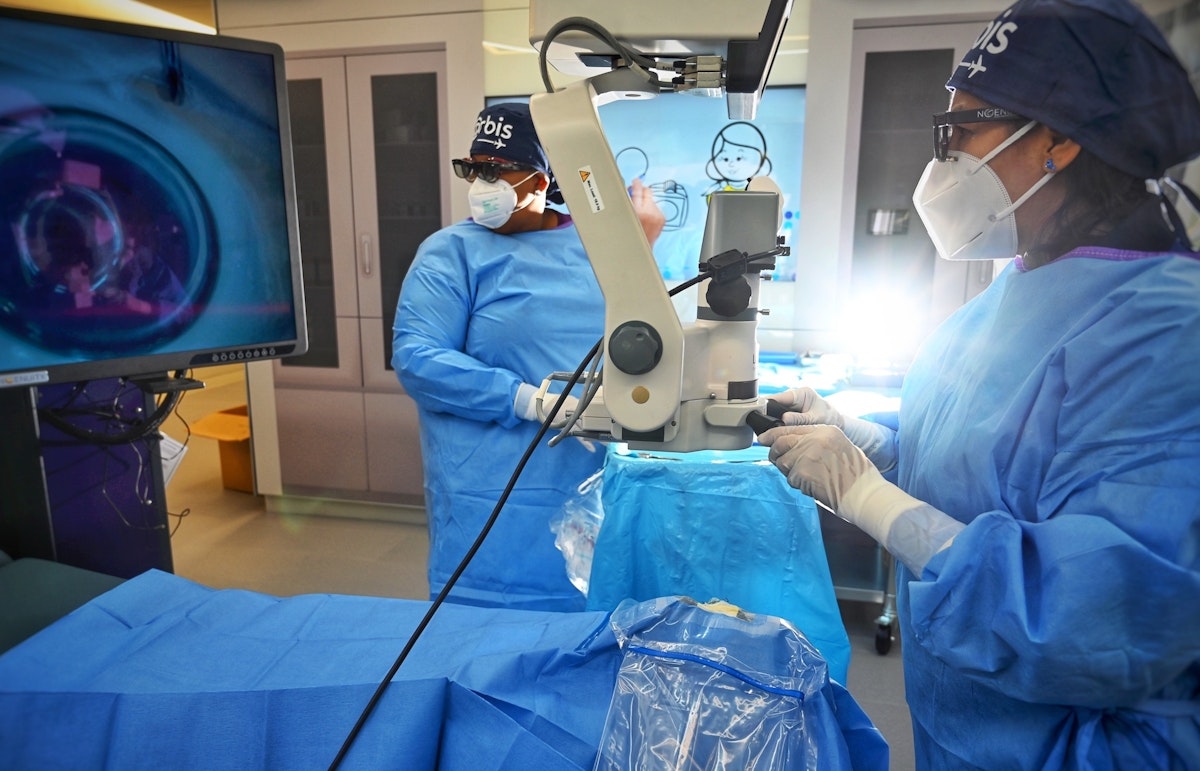The Flying Eye Hospital is the world’s only fully accredited ophthalmic teaching hospital on board an MD-10 aircraft. Equal parts teacher, advocate, and envoy in the global effort to end avoidable blindness, our state-of-the-art flying plane allows our clinical team and world-leading Volunteer Faculty (medical experts) to travel the world sharing knowledge and developing the skills of eye care professionals in the communities that need it most.
Once a cargo plane, the interior of our third-generation Flying Eye Hospital, an MD-10 donated by FedEx, was completely transformed with the support of our many generous partners.





































